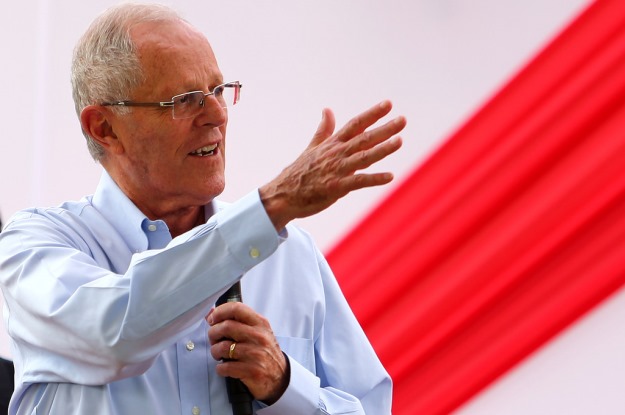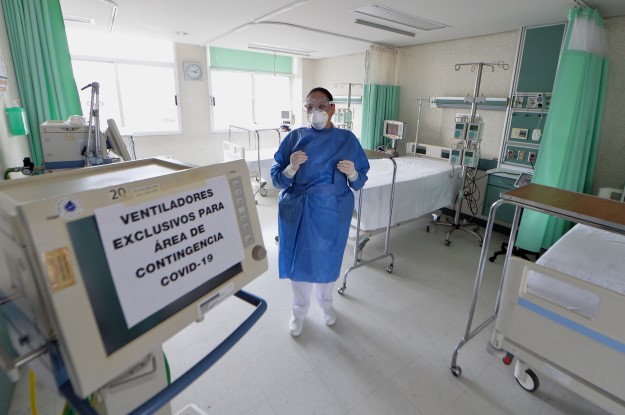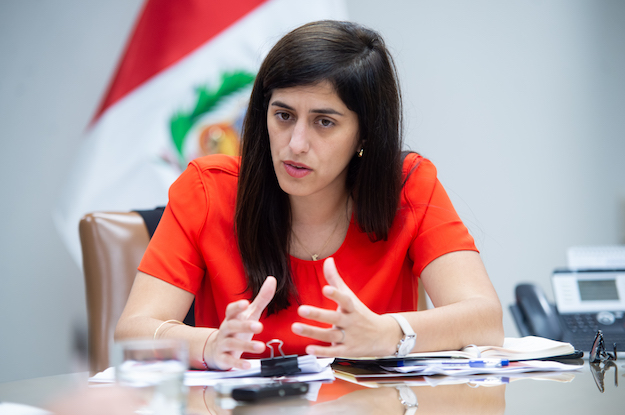The year was 1967, and worried presidents from across the Americas gathered at a hotel in Punta del Este, Uruguay to discuss a region in crisis. The twin shocks of the Cuban revolution and the Vietnam War were sowing unrest throughout the hemisphere. Ernesto “Che” Guevara was in the mountains of Bolivia, trying to incite a peasant revolt (he would be killed six months later). Elsewhere, street protests, financial chaos and coup-mongering generals were the rule of the day.
Peru was in particular trouble, its fragile government mere days away from potentially defaulting on a $40 million loan. President Fernando Belaúnde met his U.S. counterpart Lyndon B. Johnson, accompanied by a team of economic officials from both sides, to discuss the impending emergency.
Before long, Johnson grew impatient. “You guys want money?” he demanded in his Texan drawl.
Belaúnde, apparently taken aback by Johnson’s directness, tried to backpedal. “No, it’s not that…”
Then, to everyone’s surprise, a young aide from Peru’s central bank interrupted in a booming voice: “Yes! That’s why we’re here!”
Johnson nodded appreciatively. “Well, alright…” Peru got the loan within days, and the payment was made on time.
For the two presidents, relief was short-lived – Johnson opted not to seek re-election in 1968, and Belaúnde was ousted by a military coup. But things did work out OK for that outspoken 28-year-old aide. A graduate of Princeton and Oxford, Pedro Pablo Kuczynski went on to a distinguished career, serving as co-chairman of a major Wall Street investment bank and rising ever higher in government. Today, he is the president of Peru.
This week, 50 years after the Uruguay conference, Kuczynski will once again have a chance to speak hard truths to a sitting U.S. president. He and Donald Trump will meet in Washington under circumstances that are far different, but no less dramatic. Latin America desperately needs someone who can convince Trump the region is not just a source of problems – someone who can speak credibly about how free trade and smart policies have lifted tens of millions out of poverty, and created ideal partners for the United States on security, energy and other issues. No one is better suited to make this case than Kuczynski.
Some of the appeal is personal. We’ve already seen how Trump will listen to people he respects, and even change his mind on occasion (Exhibit A: James Mattis and torture). At age 78, Kuczynski has a track record and life story that Trump is likely to appreciate. He spent much of his youth in the Peruvian Amazon where his father, a German immigrant with Polish Jewish roots, was a doctor at a leper colony. In addition to his stewardship of First Boston, as well as positions at the World Bank, he also founded a major Latin American private equity firm and was president of a mining company in Pennsylvania during his many years living in the United States. Although the two men have never met, it’s clear Kuczynski knows how to speak Trump’s language – both literally (English) and figuratively (Growth! Jobs!).
Kuczynski also has bona fides on a regional issue of interest to Trump: Venezuela. He has hosted leaders of the Venezuelan opposition at his house, championed the cause of Lilian Tintori (whose husband Leopoldo López is a political prisoner), and he dedicated a large portion of his address to the United Nations last year to criticizing President Nicolás Maduro’s creeping dictatorship. This is unusual; other South American leaders, even those who oppose Maduro, have tended to be more subdued in their criticism for fear of being bullied or otherwise called out by Caracas. Trump, who also received Tintori (and tweeted a picture with her) last week, is likely to appreciate Kuczynski’s bluntness – and see a partner for dealing with South America’s worst humanitarian crisis.
That said, much of the relationship’s potential has less to do with Kuczynski himself, and more to do with Peru. The country today bears almost zero resemblance to the one that came to Lyndon Johnson with its hand out 50 years ago. Thanks to open trading policies and smart fiscal management, Peru’s economy has boomed at an average 6 percent rate over the last decade and a half. This is the positive side of the Latin American story that Trump may be unaware of – for the first time ever, more of the region’s 630 million people are now in the middle class than are poor. Granted, Mexico has prospered too, but given how charged that topic is in Trump’s mind, it may take a leader from another Latin American country to get him to see the reality.
Not everything is ideal, of course. Peru has seen an alarming rebound in cocaine production in recent years, and vies with Colombia for the dubious distinction of being the world’s number-one producer. Kuczynski’s popularity has also suffered at home due to frustration over crime and an economic slowdown. Some worry that Kuczynski’s criticism of Trump during last year’s campaign – he called the proposed border wall a “crime” – may disqualify him from having any influence with the new administration. But Trump, again, has shown a willingness to move past previous slights if there are “deals” to be had – otherwise he and Paul Ryan wouldn’t be speaking, either.
Indeed, there is a final consideration that Kuczynski embodies perfectly – and may be Trump’s best incentive to engage. After winning election last year, Kuczynski’s first foreign trip was not to Washington, but to China – which is now Peru’s number-one trading partner. A huge risk of Trump’s approach to the region so far is that Peru and larger countries, including Brazil and Argentina, may drift further into the embrace of China – with negative consequences for U.S. security and trade.
Expectations for a relationship between the two men must be realistic; no foreigner, head of state or otherwise, is likely to bend to the U.S. president much on the subject of immigration, for example. But if Kuczynski can help show Trump the real Latin America – the one that has evolved into an overwhelmingly democratic, increasingly prosperous region over the last 30 years, and is perfectly positioned to partner with the United States on a number of issues, then that would be an accomplishment in itself. Whatever else happens, Kuczynski is likely to speak his mind. History has proven that.









